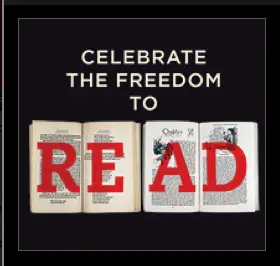
I never remember when Banned Books Week is scheduled. I stumbled about online, and luckily realized it was happening, now, this minute, until October 2. 2012. My fascination with the convoluted and off kilter reasons for parents, townspeople, and school boards’ objections to certain titles never wanes. How could it? Every year a new title that may have been published centuries ago, is being challenged by someone somewhere. The American Library Association in honor of 30 years devoted to pointing out threatened and banned titles, created a timeline of banned books–from the year Banned Books Week began, 1982, until this year. Some not yet read titles are familiar to me because of being challenged constantly by the ignorant. Other titles I’v’e never heard of. A great deal of them are juvenile or grade school level.
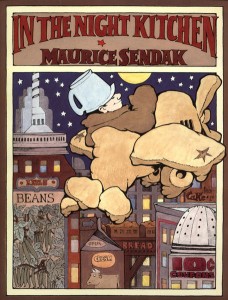
Naturally, easy targets like In The Night Kitchen were included in the timeline. In the Night Kitchen, the classic picture book by the late Maurice Sendak, depicts a naked boy–and that’s enough for it to be grabbed off library shelves and thrown away as inappropriate reading. I didn’t see a copy until I was well into adulthood. His work arrived a bit after I was the age for such things, and even if available, the price wouldn’t have been affordable by my family. When I did discover Sendak, I went loony–I bought all of his books, the 500th printing, whatever, and even the gigantic tome encompassing his work up until that date–the mid-1980s. I adored the three Ollie Hardys, baking away in the kitchen. I bought a stuffed monster from Where the Wild Things Are and proudly displayed it as if I were 7. If I had had kids, they would have not only been given his books, they would have been required reading. Every time I see a Sendak challenged, it makes my heart shrivel a little, knowing that ignorance still holds sway.
Other givens are Huckleberry Finn (Mark Twain)–for the sin of allowing the characters to use disparaging language, exactly as they would have during the period the book was written. Slaughterhouse Five (Kurt Vonnegut)–not necessarily for the violence, but for the cursing, for God’s sake. God forbid soldiers or humans dodging death missiles from the sky use language less than pure. We all know that John Wayne never needed to curse when he killed all those Japs, or Krauts. Of course, John Wayne never saw a battlefield in his life, except on a nice safe film set. Oh, yeah, if a book about WWII should use derogatory terms such as Japs and Krauts, it could be challenged–since the nations are friends again, it’s inappropriate language. And naturally, historical context is too complex and difficult a concept for people to grasp, better to toss out the book.
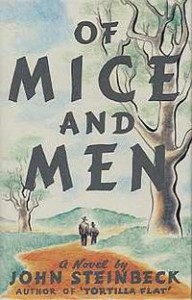
Catcher in the Rye, ( J. D. Salinger) leaves libraries without fanfare–although I’ve yet to remember one single reason that book would be offensive. Other than, perhaps, people with green teeth becoming incensed at Holden’s description of a school mate’s mouth.
Of Mice and Men?? (John Steinbeck) Did PETA get involved because Lenny likes to hear about rabbits? OK, he did kill one or two along with the boss’s wife, but kids see worse on every channel–either true crime, or Law and Order, SVU. Man, what don’t they cover on SVU? Most female victims’ bodies, that’s what. No, the problem with Mice is the overt sexualization–this feels like deja vu–I think I wrote about this very subject like, uh, a million times before. To Kill a Mockingbird–a southern school district wanted this book gone. Gee, I can’t imagine why. No, I don’t buy the reasoning that rape etc., is too much for younger minds. Maybe the school district misunderstood, and thought Mockingbird was non fiction about their part of the world?
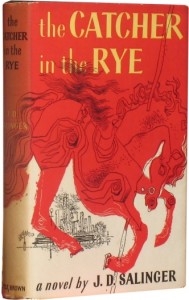
The above books I have read. Wait, no, Slaughterhouse only feels like I read it because of the constant controversy. I know I should have read The Color Purple (Alice Walker), The Bluest Eye, (Toni Morrison), and I Know Why The Caged Bird Sings (Maya Angelou), but I haven’t, and if I were to follow the complaints from people who want these books removed from whatever public spot they are at, I never will. The complaints — explicit sex, sex and sex. And the all encompassing reason it’s ‘disturbing’. Difficult lives recounted by the people who lived them? We don’t need that kind of filth tainting rose colored glasses manufactured in our closeted fantasy world.
I realize Judy Blume has made a nice name for herself among the most challenged of authors, but I’ve never cracked a book of hers–again, my adolescence was well over when she published. Or maybe I was simply clueless to the empathetic nature of her words to kids like myself. Her titles are consistently challenged–she must be doing her job brilliantly. The Satanic Verses (Salman Rushdie) was challenged by the entire Moslem world, so a couple of problems here and there in the US isn’t surprising–except that in the US, we are supposed to have freedom of speech, and as such, shouldn’t need to ban books on the basis of others’ opinions.
Madonna’s Sex is over rated and overly controversial. Libraries across the country were intent on keeping that book under–or in–its original wraps. Like a tree in a forest, if no one had bothered about Madonna’s Sex, would it have been in demand? Doubtful–essentially, those frigid fathers and mothers who complained, helped Madonna afford more glam clothes and boy toys from the receipts all the controversy provided.
I think challenging Go Ask Alice (Anonymous) amuses me the most, because it was hailed as a memoir about the horrors of drug use, but in reality, is a novel touting the horrors of drug use, sex, and everything that would be bad for teens. The very themes written to warn off teens, are the reasons the book has been challenged.
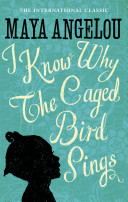
Harry Potter? For the love of all that’s dark and atheistic–why would this series be offensive? Oh, because some otherwise intelligent parents were concerned the books were blueprints for witchcraft and atheism. If read by the innocent gullible child, he or she may become so fascinated with ‘real’ witchcraft, they will travel to the dark side and join the devil’s army. I had personal experience with members of my family, expressing just those beliefs, and when informed that ‘real’ Wiccan’s don’t believe in a devil, I was instantly branded as a demonic co-conspirator. There is no reasoning with the unreasonable mind.
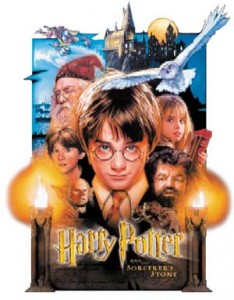
Captain Underpants, by Dave Pilkey, Daddy’s Roommate by Michael Willhoite, All But Alice by Phyllis Reynolds Naylor, Bridge to Terabithia, by Katherine Paterson, King and King by Linda De Hann, And Tango Makes Three, by Peter Parnell and Justin Richardson, The Golden Compass by Phillip Pullman, TTYL, by Lauren Myracle, The Perks of Being a Wallflower by Stephen Chbosky were challenged throughout the years. I know nothing about them except what the timeline discloses, and it seems that sex is the predominant complaint brought forward as to content. Sex also means, which sex the characters are attracted to–and if it’s the same sex, that’s a huge no-no. Profanity is another abhorrence within a story–Bridge to Terabithia was challenged for its four letter words. This excuse is worse than kids turning into blood sucking devils from reading Harry Potter. There is no kid, anywhere in the vast cornfields, purple mountains, or the oceans white with foam, who has not encountered curse words in their young life. They probably have a broader vocabulary than the author. To ban or pull a book based on profanity is hypocritical to the nth degree. Fallen Angels by Walter Dean Myers was pulled from a California school district due to profanity, and, dear heavens, violence. Violence. A young adult novel about war, specifically the horrific Vietnam War, and it was removed because of too many curse words, and too much violence. In the 60s, kids were but a couple years away from experiencing first hand the offensive language and graphic violence when drafted into the armed forces and shipped off. The hypocrisy in this one is dripping so much, it’s formed an acidic pool.
Despite the long years Banned Books Week has existed, titles are still challenged and banned by individuals whose sole purpose is to ‘protect’ the public from books and thoughts they personally find offensive and dangerous. Thank goodness, Banned Books Week and the ALA protects US from them.
To see the entire list and book synopsis and full reasons for banning and challenging a title, plus cool things about censorship, go here.
